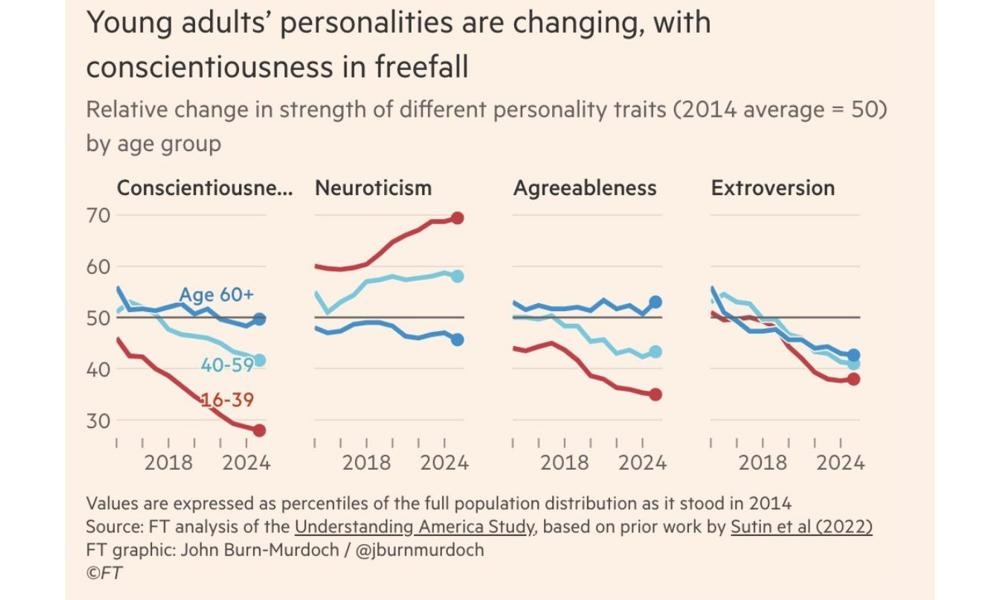Is Your Smartphone Changing Your Personality?
 pbmedia / Adobe Stock
pbmedia / Adobe Stock
Toggle Dark Mode
Smartphones and screen time are usually a hot topic amongst parents. We’ve covered studies on smartphone addiction induced, in part, by receiving constant notifications and also recommended tips to more healthily manage the time spent on your devices.
However, this addiction is prevalent amongst both kids and adults. The American Academy of Pediatrics recommends no screen time for kids under 18 months, a slow introduction of quality children’s media between 18 months and 2 years old, and only 1 hour daily for kids 2 to 5. All parents know this is easier said than done. A new study has revealed the devastating mental health impact of smartphone addiction, especially for Generation Z (ages 12–27). They’re rewiring our brains at breakneck speed.
The Financial Times used data from the Understanding America Study conducted by the University of Southern California Dornsife Center for Economic and Social Research to analyze American personality changes. In the last 10 years, conscientiousness, the personality trait most closely linked to responsibility, follow-through, and self-control, has fallen off a cliff among those ages 16 to 39.
While a full explanation of these shifts requires thorough investigation, and there will be many factors at work, smartphones and streaming services seem likely culprits. The advent of ubiquitous and hyper-engaging digital media has led to an explosion in distraction, as well as making it easier than ever to either not make plans in the first place or to abandon them. The sheer convenience of the online world makes real-life commitments feel messy and effortful. And the rise of time spent online and the attendant decline in face-to-face interactions enable behaviours such as “ghosting.”
John Burn-Murdoch, Financial Times
The findings further reveal a preference for the digital world over reality, as well as a decline in trust and extroversion. Smartphones are a constant tool for stimulation. More and more, people are using them to replace reality. As a result, they’re not learning basic life skills like patience, impulse control, and the ability to focus intently on life and tasks beyond the screen.
Apple’s Screen Time feature, released in 2018 as part of iOS 12, was aimed at promoting a balance between the digital world and reality. The Financial Times’ review of the data from the Understanding America study firmly suggests it isn’t working (or, at the very least, people aren’t using it properly).
Is there a potential fix, or are we all destined to become zombies afraid of looking up at the rest of the world? We likely can’t count on regulation, since tech companies profit from our constant dopamine surges. For now, it seems like the best we can do is exercise some self-control and purposefully limit our daily screen time and insist our family members do the same, particularly children. Healthy habits start young.









